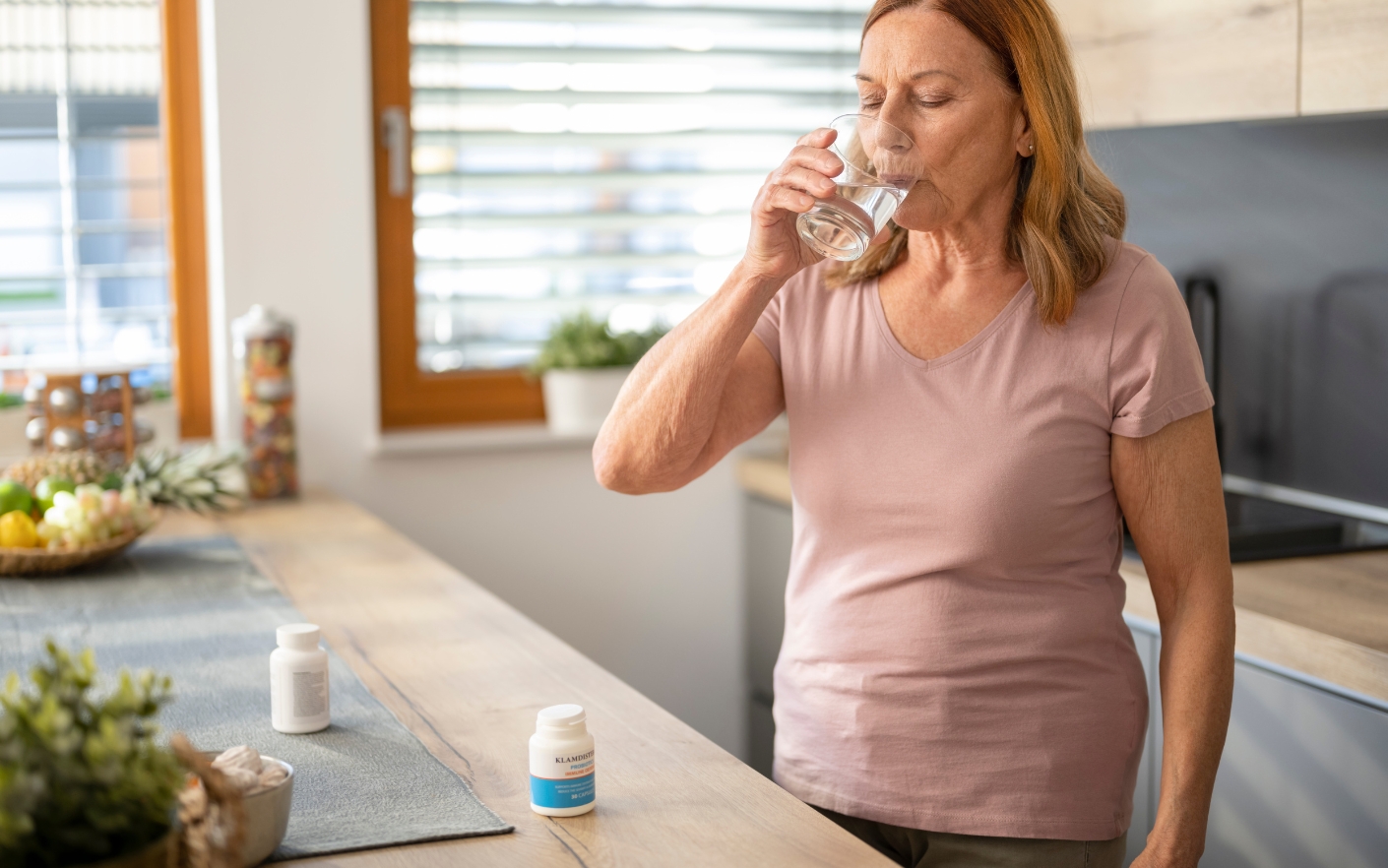Medications & hydration: what you need to know for blood sugar control

Your medications and hydration work together for blood sugar control. This guide shows you how different diabetes and blood pressure medications affect your hydration needs, plus timing strategies to maximize medication effectiveness while preventing side effects.
Table of contents
- Why your medications and hydration strategy must work together
- The medication-hydration connection for blood sugar
- Essential guidelines by medication type
- [PREMIUM] Blood pressure medications and hydration adjustments
- [PREMIUM] Medication timing and hydration schedules
- [PREMIUM] Using hydration to prevent side effects
- [PREMIUM] Emergency protocols and healthcare communication
Why your medications and hydration strategy must work together
If you're managing blood sugar with medications, you've probably received two separate pieces of advice: "take your medications as prescribed" and "drink more water." But how and when you hydrate can significantly affect how well your medications work.
Some diabetes medications work better when you're properly hydrated. Others can actually increase your risk of dehydration. And certain medications require specific timing with water intake to be absorbed properly.
Getting this wrong doesn't just mean less effective medication - it can mean unpredictable blood sugar, side effects you didn't expect, and hydration strategies that backfire instead of help.
The medication-hydration connection for blood sugar
Your medications don't work in isolation. They depend on:
Proper blood volume: Dehydration reduces blood volume, making it harder for medications to circulate effectively.
Kidney function: Most diabetes medications are processed through your kidneys, which need adequate hydration to work optimally.
Absorption timing: Some medications absorb better with water, others can be diluted by too much fluid too quickly.
Side effect management: Proper hydration can prevent or reduce many common medication side effects.
Essential guidelines by medication type
Metformin (the most common diabetes medication)
What it does: Reduces glucose production by your liver and improves insulin sensitivity
Hydration impact: Can cause mild dehydration and digestive upset, especially when starting
Hydration guidelines:
- Take with 8 oz of water as directed
- Add 8-12 oz to your daily hydration total
- Space additional water 30 minutes after taking medication
- If you experience nausea, sip water slowly rather than drinking large amounts
Timing considerations:
- Don't skip water with metformin to avoid stomach upset
- If taking twice daily, ensure adequate hydration with both doses
- Extended-release versions may need less additional water
SGLT2 inhibitors (Jardiance, Farxiga, Invokana)
What they do: Help your kidneys remove excess glucose through urine
Hydration impact: Significantly increase fluid loss through urination
Hydration guidelines:
- Add 16-20 oz to your daily hydration total
- Monitor urine color more carefully (should stay pale yellow)
- Take with 8 oz water as directed
- Be extra cautious during hot weather or illness
Warning signs to watch for:
- Dark yellow urine
- Dizziness when standing
- Unusual fatigue
- Frequent urination without adequate fluid replacement
Insulin (all types)
What it does: Helps cells absorb glucose from your bloodstream
Hydration impact: Doesn't directly affect hydration, but proper hydration improves insulin effectiveness
Hydration guidelines:
- Follow standard hydration recommendations
- Ensure adequate hydration during illness (when insulin needs may change)
- Proper hydration helps prevent diabetic ketoacidosis
- Don't restrict fluids unless specifically told by your doctor
Become a member to access
Get instant access to:
✓ Blood pressure medication interactions
How diuretics, ACE inhibitors, and other BP meds affect your hydration needs
✓ Medication timing schedules
Optimal spacing of water intake around different medication schedules
✓ Side effect prevention
Using hydration to minimize common medication side effects
✓ Emergency protocols
What to do during illness, medication changes, or hydration emergencies
✓ Doctor communication guidelines
How to discuss hydration needs with your healthcare team
✓ Monitoring and adjustment protocols
Tracking systems to optimize both medication effectiveness and hydration




